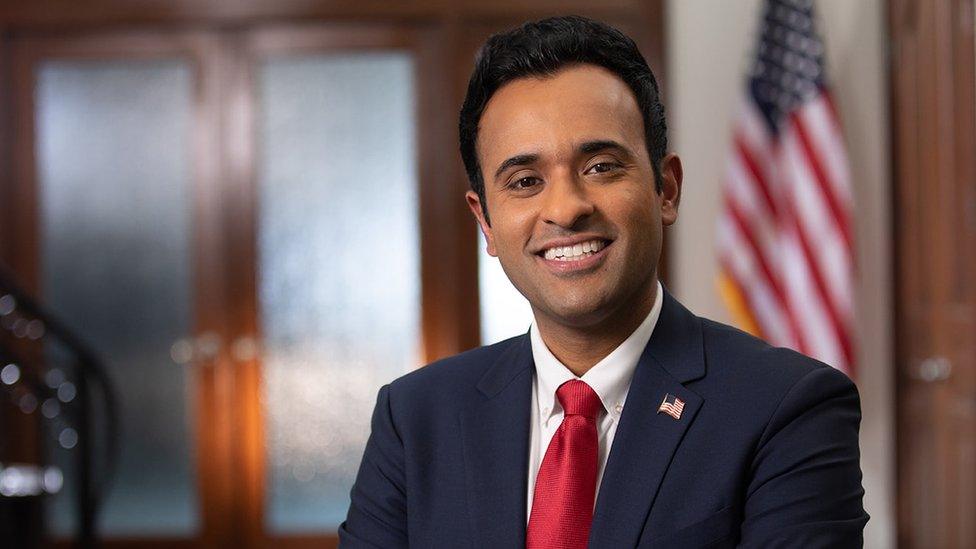How does the Republican Party pick its presidential nominee?
- Published
A very quick guide to the Republican Primaries

Donald Trump is running again to be US president and voting on Super Tuesday, 5 March, will help decide whether he beats his opponent, Nikki Haley, to become the Republican Party’s nominee.
The winner will go on to face the sitting president, Democrat Joe Biden, in the 2024 election in November.
There are two main parties in US politics
The liberal Democrats are currently in the White House and the conservative Republicans are in opposition. Democrats tend to believe in bigger government support and spending while Republicans typically call for lower spending and stripping back the state.
Choosing a Republican Party nominee takes nearly two years
Trump has been a leading figure in the Republican Party since becoming president in 2016, but he lost to Biden in 2020. For this 2024 election, Republicans need to pick a candidate - a process called the primaries. Biden is not facing any serious opposition for the Democrat nomination.
Primaries are a series of state elections and then a national conference
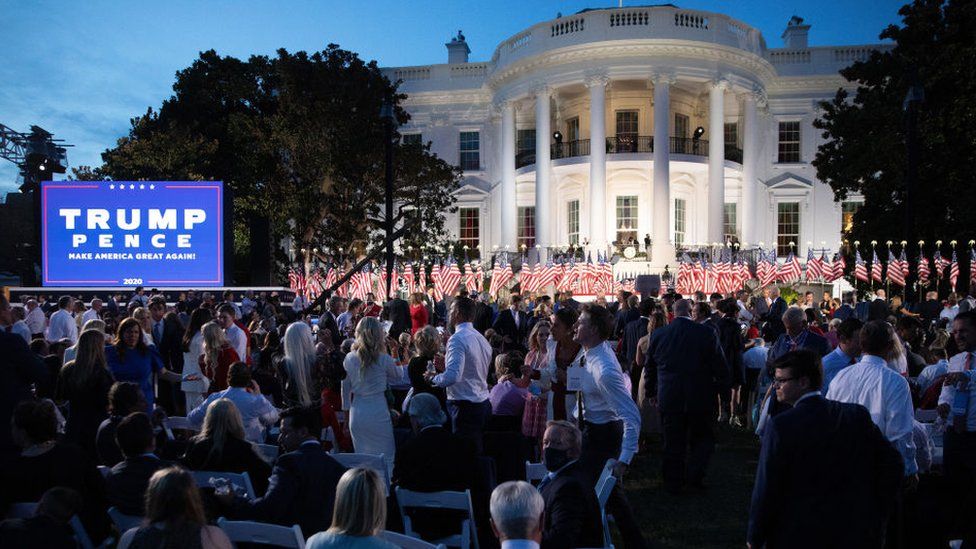
Each state holds an election to vote on who they want as party nominee and the overall winner is officially crowned at the Republican National Convention (RNC) - a big political event in July 2024.
A state can pick its preferred candidate in two ways
Nearly all the states hold their primary elections in the same way - a secret ballot, like a general election. A small number of states have a caucus which is a head count or a show of hands.
The states have different rules on who can vote - often only Republican Party members. Based on how many votes they win, the candidates get a certain number of delegates who represent them at the convention.
Voting started with the Iowa caucus in January
This was shortly followed by the New Hampshire primary. More primary elections have been held in South Carolina, Michigan and Washington DC, and caucuses in Nevada and the Virgin Islands. Donald Trump currently has 244 delegates and Nikki Haley 43 delegates.
Super Tuesday is the biggest day for voting
On 5 March, there will be Republican party elections across 15 states, including the ones with most people - California and Texas – and in the US territory of American Samoa. With 865 of 2,429 delegates up for grabs, it is often the point when a likely winner emerges. If Trump has a good night, he will be very close to winning outright.
Trump skipped the TV debates this time
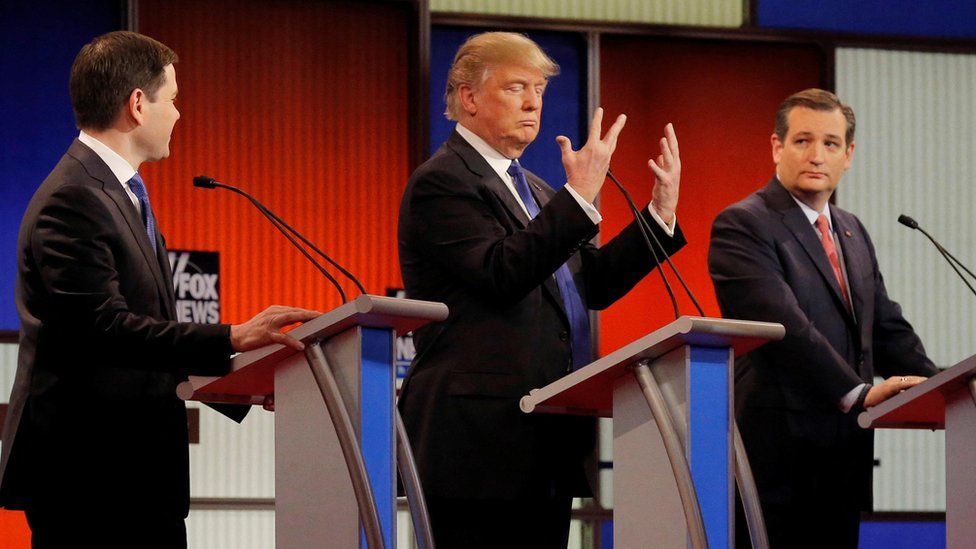
Millions usually tune in to watch the presidential hopefuls discuss policy and trade insults. The first Republican debates began in August 2023 with a large range of candidates, but interest has not been as high because they've happened without the most popular candidate, Donald Trump. He refused to promise to back whoever wins the primaries and said he doesn’t need to face his rivals on stage.
Trump is the favourite to win the Republican race
He remains the likely winner after triumphing in all the early states. A busy few months lie ahead for Mr Trump as he runs for the White House while also facing a number of criminal charges, including attempting to overturn the 2020 election results.
He denies wrongdoing and says the indictments are political. Even if he was convicted or jailed, he could stay in the race for the White House.
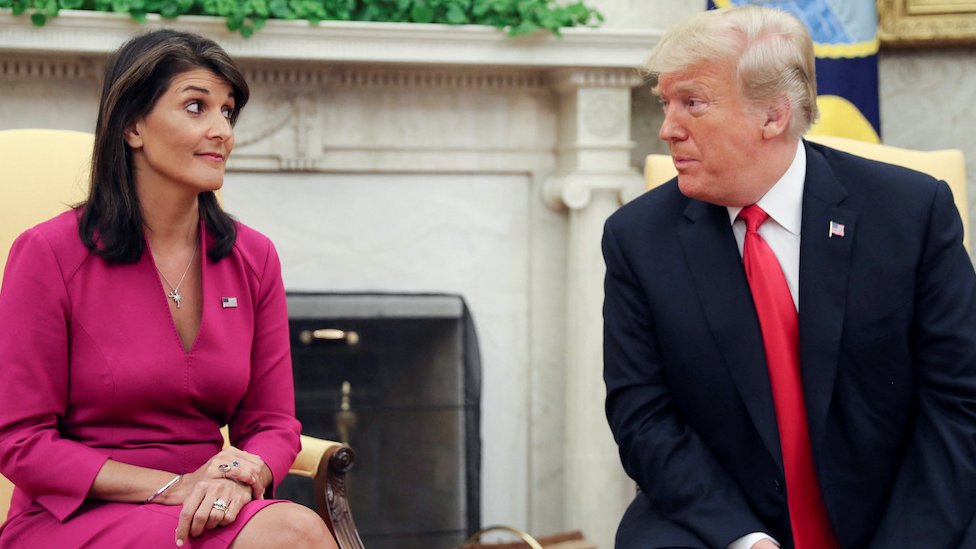
Nikki Haley is Trump’s only remaining opponent
The former US ambassador to the UN is the only person left challenging Trump after Florida Governor Ron DeSantis, Indian-American businessman Vivek Ramaswamy and former New Jersey governor Chris Christie all quit the race.
So far, Haley has lost to Trump in nearly all the contests including in South Carolina, her home state. She says she is staying in the race because voters "have the right to a real choice, not a Soviet-style election with only one candidate.”
By Rosemary McCabe and Text Formats
Related topics
- Published21 January 2024
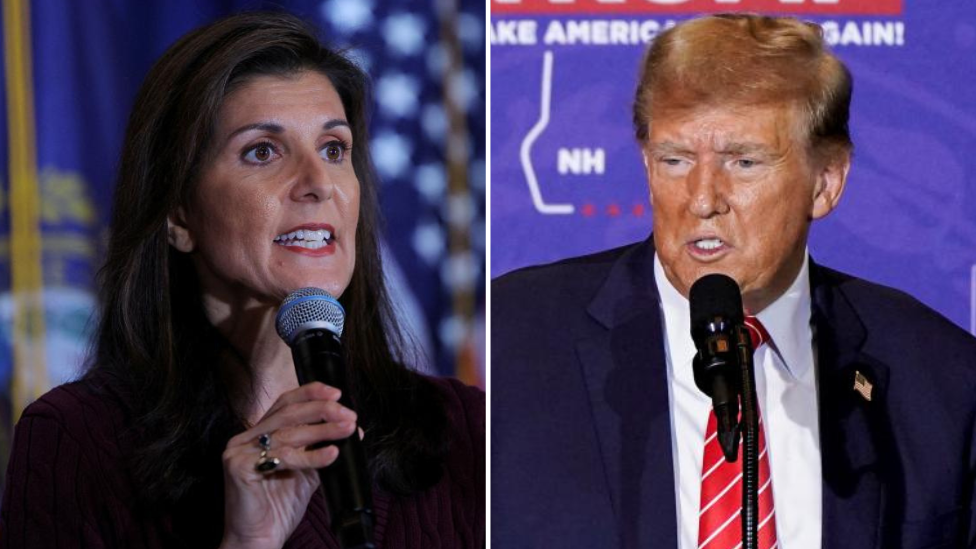
- Published8 August 2023
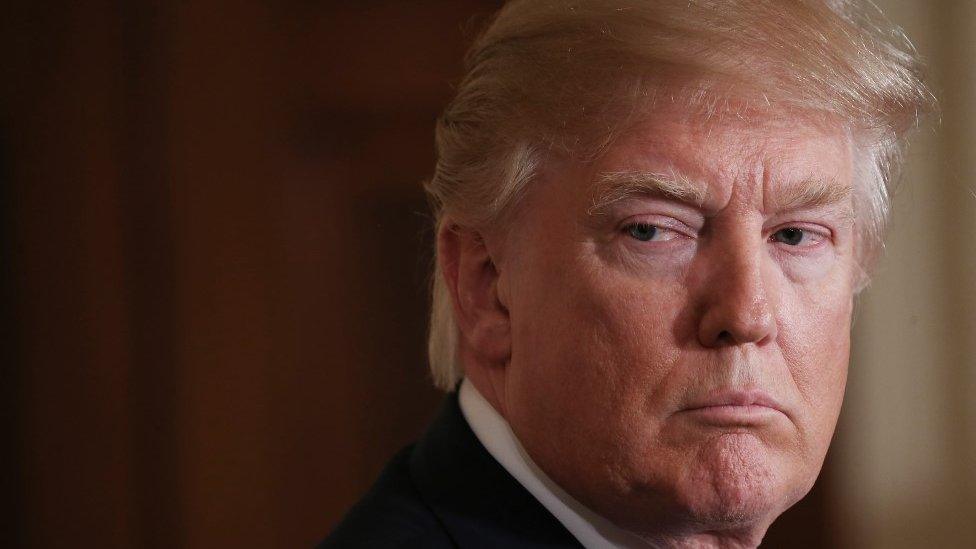
- Published1 March 2023
